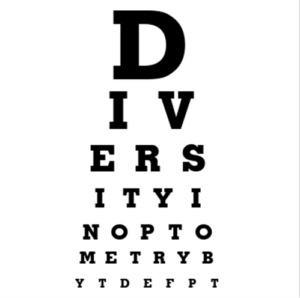To those students going into OD 1, here are some words of advice, study tips and recommendations to help you transition into optometry school. Print this note and keep it nearby as a reference as you prepare for this new chapter of your life. Reach out to those of us just ahead of you. We’re all in this together!
Words from Current Students:
- Be active in your education. Be organized, be on time and pay attention!
- Don’t skip class. You will fall behind.
- Be kind to your classmates. You’re all in the same boat trying to accomplish the same goal.
- You have a whole community of support, so always ask for help and never be afraid to ask for guidance.
- Find your routine and stick with it. Routine with study time, exercise, and social life.
- Stay true to yourself. Everyone will struggle but no one has your experiences, your character, and your story. Use it to your advantage because it has led you this far.
- Time management is IMPORTANT.
- Utilize people and resources.
- Comparing yourself to others is inevitable but absolutely unproductive.
- Learn how to take notes properly and effectively.
- Study daily and effectively.
- Have coping mechanisms ready for your stress. Find ways to de-stress daily to reset your mind.
- Take everything day by day.
STUDY TIPS
- Study on nights you don’t think you need to.
- Repetition and handwriting annotation on Power Points can be helpful.
- DO NOT PROCRASTINATE. Study daily & ask questions!
- Your study style might change from what you did in undergrad.
- Do what is best for you – it doesn’t have to be the way everyone else studies.
- Go over the material at LEAST three times. Quiz yourself off each slide without looking. Anki is a great tool.
- Make a schedule for yourself. Keep yourself accountable and give yourself breaks!
- Passion Planner helped me schedule everything out by half hour increments!
- Use active recall/retention methods like brain dumping, blank charts/tables, making your own practice tests, and so many others.
- 48-hour period! Review a new lecture within the 48-hour period to solidify what you learned in class.
- Don’t neglect your sleep!
- Stay up to date on studying! Do a little bit each day for each subject!
TRANSITIONING INTO OPTOMETRY SCHOOL
- Know what your stress relievers are & make time for them in your schedule.
- Find a group of friends and create a support system of people who are going through the same thing you are.
- Move in early, especially if it is a new city. Take time to fully move in, get acquainted to your new surroundings, and establish a routine before you start!
- Know that we are all overwhelmed and it is normal. Make friends and try to talk to everyone. It feels good to know so many others are in the same boat, and you aren’t alone.
- Be organized with planner and calendars.
- Lean into family support, friends, and maintain hobbies.
- Learn what your strengths and weaknesses are academically. Be able to analyze your own self and use resources!
- A good group of friends can help keep you on track, hold you accountable, and keep you sane when things feel overwhelming.
RECOMMENDATIONS
- Get an iPad with notability.
- Get involved! Four years will fly by, so explore your school clubs, volunteer, and go to conferences whenever you can!
- Don’t be afraid to lean on your classmates whether asking them for help or practicing clinical skills.
- Recognize the importance of understanding concepts and not just memorizing. Everything comes back so understanding the material will always help you in the long run.
- Remember why you started and where you want to be in four years. Never give up!
- Make condensed study guides for each exam. Practice your clinical skills as often as possible!
- Always go to exam reviews. Even if you did great, going to see your professor to see what you missed will help you retain information long term and even maintain for the final.
- Figure out how you learn and retain information the best.
- Find your own pace and make sure to stay organized.
- Have a strong support system – friends, family, classmates, mentors, and faculty
- Make the best of your four years in optometry school!
- Know you are doing this for yourself, your community, and your future patients!







